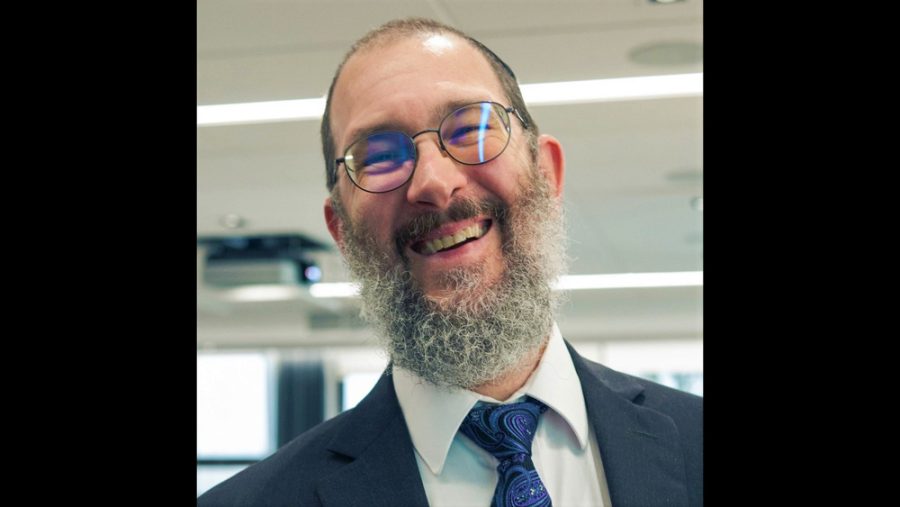by Rabbi Yonason Goldson in the St. Louis Jewish Light
When society lacks any common code of morals or ethics, values become a philosophical free-for-all. But in a culture built on the bedrock of core principles, a system of absolute values will naturally emerge.
The proliferation of ideas, philosophies, and life-style choices that were marginal a few decades ago (and unimagined a few generations ago) is progress in the eyes of some, anathema in the eyes of others. If we are genuine in our desire to hold positions that are both rationally and ethically sound, intellectual integrity demands that we represent opposing viewpoints honestly and take great care not to misrepresent our own.
Enjoy what you're reading? Subscribe for more!
This is the backdrop behind the formation of the Coalition for Jewish Values, which has just opened its first state chapter here in St. Louis. Having been honored to serve as executive vice president of the CJV-MO, I would like to introduce our newly formed organization and outline our mission, goals, and plans.
As new ideologies gain popularity, we increasingly witness claims that the ancient tenets of Judaism support modern movements and values. In truth, tradition teaches precisely the opposite. As the late New York Senator Daniel Patrick Moynihan famously said, “You’re entitled to your own opinion, but not your own facts.”
So, what are the facts? How are traditional Torah values relevant to the modern world? According to (the non-Jewish) historian Thomas Cahill:
“The Jews started it all—and by ‘it’ I mean so many of the things we care about, the underlying values that make all of us, Jew and gentile, believer and atheist, tick.”
In other words, from the ancient tradition of Torah law and ethics come the foundational tenets of both liberal and conservative philosophy. On the one hand, those include caring, liberty, and fairness, which manifest as acts of kindness, charity, personal freedom, empathy, and the vision of a better world. On the other hand, we find loyalty, authority, and sanctity, which manifest as personal responsibility, accountability, self-discipline, and respect for the boundaries of tradition.
It’s a sign of how far we have descended into the morass of polarization that some see these ideals as incompatible with one another. A culture of acrimony arises when those who passionately argue from one side forget that the values of the other side are equally legitimate and flow forth from the same wellsprings of divine wisdom.
Indeed, Judaism’s classical moral tract, Ethics of Fathers, begins with this teaching: Moses received the Torah at Sinai, from which he transmitted it to Joshua, who transmitted it to the elders, and from them to the prophets, who transmitted it to the men of the Great Assembly. These were the codifiers of Jewish law and ethical principles, the critical links in the chain of transmission that connects us to our earliest identity as a people. They are also the custodians and disseminators of enduring wisdom that transcends the vagaries of time and ideology.
As part of the largest rabbinic public policy organization in America, the new Missouri chapter of CJV will serve as the voice of authentic Jewish values handed down from time immemorial. We are not a partisan action group, and we do not endorse political candidates. What we seek to do is bring the time-honored values of Jewish tradition back into the conversation by articulating how they are foundational to our cultural beliefs and how they serve our collective best interest.
I am delighted to take on my new role under the leadership of Rabbi Ze’ev Smason, with whom I have worked on many occasions over the last quarter century. During his long tenure as spiritual leader of the Nusach Hari B’nai Zion congregation, Rabbi Smason has frequently demonstrated his commitment to the St. Louis Jewish community, as an articulate voice of Torah values, and as a stalwart defender of authentic Torah ideals. His scholarship, insight, and moral courage testify that, as chairman of CJV-MO, he will represent 3,300 years of consensus among established Torah authorities, and indeed the consensus of America’s rabbis, with integrity and discernment.
What are our most passionate issues? The protection of children, the sanctity of life and marriage, fundamental fairness in education and society at large, responding to the rise of anti-Semitism, and responsible policies toward the state of Israel. Although it’s easy to frame these outlooks as left vs. right, by remembering that all our core values emerge from the teachings of divine wisdom, we can pursue a respectful dialogue that will bring the Jewish community, together with the wider world, closer together instead of driving us further apart.
As our chapter matures, we look forward to publishing articles, op-eds, and letters to the editor sharing our voice on relevant topics, as well as media interviews and communication with state and local lawmakers to ensure that the Torah perspective is well-represented and understood. We hope to promote deeper awareness and civil discourse, which are essential for a healthy and vibrant society.
Originally published in the St. Louis Jewish Light


